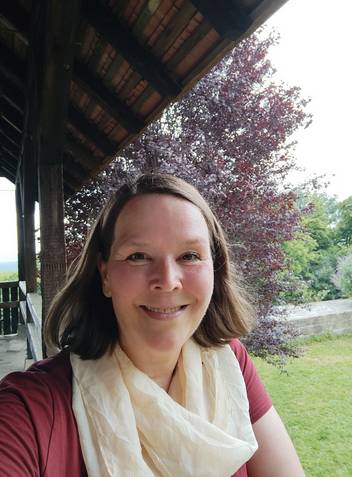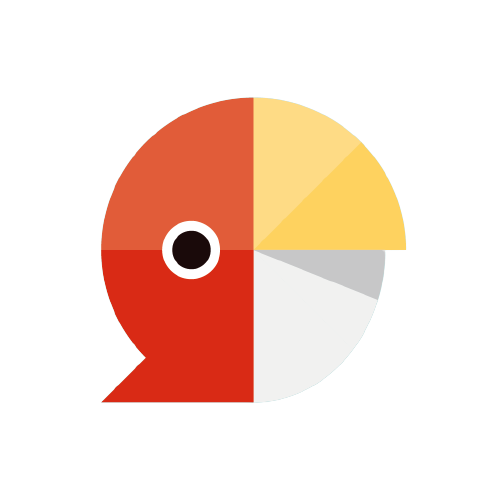If you are a student of French, chances are that mastering conversational French takes priority as your number one goal. Perhaps you dream of easily expressing yourself in French conversations in whilst bargaining in Parisian flea markets or savoring cafés au lait on the Riviera. This might seem like a venture that would require years of diligent study or perhaps a stay of months or even years in France to achieve adequate fluency.
Fortunately, taking advantage of modern technology and world interconnectedness combined with your own determination and focus will provide several routes which you can follow to accelerate your progress and be able to enjoy fantastic conversations in French.
This guide is designed to serve as your compass, providing practical study tips as well as engaging dialogues for those in search of the building blocks of basic French conversation and common French phrases. As you progress, you will infuse your French conversations with nuance and precision, taking the guesswork out of expressing exactly what you intend to say in every possible situation.

If you're a beginner learning French, here are some tips to help you get started and build a strong foundation
Whether you're navigating your way through the streets of Marseille or simply aiming to exchange pleasantries using common French phrases, these tips for beginners are your guide to mastering simple conversational French.
1. Learn Common French Vocabulary and Phrases
Start by learning common everyday French vocabulary and phrases such as greetings, introductions, and polite expressions. This will help you feel more comfortable in simple conversational situations. You can find lists of vocabulary and phrases on this Wiktionary page.
2. Master French Pronunciation
Pay attention to French pronunciation early on. Practice the sounds of individual letters and common letter combinations. Using a good online French dictionary (such as dict.leo.org) will give you the opportunity to hear native-speaker recordings of words.
3. Join a French Language Class
It’s important to find a language school which offers small classes (maximum 6 students) and ideally native speakers as teachers. Don’t underestimate the power of community where real people share their real-time presence with each other. The synergistic learning effects are monumental.
4. Use French Language Learning Apps
Take advantage of language learning apps designed for beginners. Apps like Duolingo, Babbel, and Pimsleur offer interactive lessons, vocabulary building, and pronunciation practice. The big advantage of these apps is repetition – you repeat lessons so often that you learn conversational French phrases quickly, easily and naturally.
5. Immerse Yourself in French Media
Listen to simple French songs, watch cartoons or beginner-level shows, and read children's books. Try out our app Newsdle which offers a variety of French news stories on current topics many of which are suitable for beginners and which features useful flashcard, listening and testing functions as well. This will expose you to conversational French topics in a more natural context and help improve your listening skills.
6. Follow French-Teaching YouTube channels
YouTube offers a wealth of engaging channels dedicated to teaching French. Much of the content is geared towards French conversations. Here are a few which are excellent for beginning students: FrenchPod101 and Learn French with Alexa.
7. Practice Regularly
Consistency is key. Set aside a dedicated time each day for language practice. Even short, regular sessions are more effective than sporadic, long study sessions.
8. Use Flashcards or Flashcard Apps for Learning Vocabulary
Flashcards can help you memorize new words and basic French phrases effectively. Create paper or virtual flashcards (using apps like Anki) for vocabulary and practice regularly.
9. Learn Basic Grammar Rules
Familiarize yourself with basic grammar rules early on. Understand the fundamentals of sentence structure, verb conjugation, and common prepositions. This will give you the basic structure you need to make your own sentences. But don’t be afraid of making mistakes, which leads us to our next point:
10. Speak from Day One!
Don't be afraid to start speaking French from the beginning. Practice speaking with language exchange partners, tutors, or fellow learners. You can even have French conversations with your cat, or better yet, parrot. This will help you build confidence and improve your oral communication skills.
To get you started, here are a few basic French conversation dialogues for you to practice
Greetings:
A: Bonjour!
B: Salut! Comment ça va?
A: Ça va bien, merci. Et toi?
B: Ça va bien aussi.
A: Hello!
B: Hi, how are you?
A: I'm fine, thanks. How are you?
B: I'm fine too.
Asking for Directions:
A: Excusez-moi, où est la gare?
B: La gare? C'est tout droit, puis à gauche.
A: Merci beaucoup!
A: Excuse me, where is the station?
B: The station? It's straight ahead, then left.
A: Thank you very much!
Ordering at a Café:
A: Bonjour, je voudrais un croissant, s'il vous plaît.
B (server): D'accord. Et un café?
A: Oui, un café noir, merci.
A: Hello, I'd like a croissant, please.
B (Server): Okay. And a coffee?
A: Yes, a black coffee, please.

Talking about Hobbies:
A: Tu aimes faire quoi pendant ton temps libre?
B: J'aime écouter de la musique et lire des livres. Et toi?
A: Moi, j'aime regarder des films et faire du vélo.
A: What do you like to do in your spare time?
B: I like listening to music and reading books. What do you like to do?
A: I like to watch films and ride my bike.
Introductions:
A: Salut, je m'appelle Thomas. Et toi?
B: Enchanté(e), Thomas. Je suis Marie.
A: Hi, my name is Thomas. What's your name?
B: Nice to meet you, Thomas. I'm Marie.
Family and Relationships:
A: Tu as des frères et sœurs?
B: Oui, j'ai un frère et une sœur. Et toi?
A: Non, je suis fils unique.
A: Do you have brothers and sisters?
B: Yes, I have a brother and a sister. Do you?
A: No, I'm an only child.
Feel free to use these dialogues for practice, and don't hesitate to modify them or create your own French conversations based on these examples. As you become more comfortable, you can gradually incorporate more complex vocabulary and structures into your conversations.
Tips for Intermediate Learners to Take their Skills from Basic French Conversation to Fluency
Improving your French conversational skills at an intermediate level involves practicing regularly and incorporating a variety of methods. At the intermediate stage, the journey takes you from using the most common French phrases to a wealth of colloquialisms and conversational French phrases. If you find yourself comfortably maneuvering through basic conversations but yearn for richer, more engaging dialogues, you're in the right place. This guide for intermediate learners is designed to elevate your French conversations, giving you the tools to navigate beyond simple exchanges.
Here are some suggestions to help intermediate learners enhance their French conversational abilities:
1. Language Exchange Partners:
Find a language exchange partner who is a native French speaker wanting to learn your native language. You can practice speaking French conversations with them, and in return, help them to learn your native language. Apps such as Tandem, HelloTalk, and ConversationExchange connect language learners for language exchange.

2. Watch French Films and TV Shows
Watch French movies, TV shows, and documentaries. This will expose you to the different accents, colloquial expressions, and cultural nuances which are the building blocks of conversational French. You can also use subtitles to help with understanding. Start with subtitles in your own language and then progress to watching French media with French subtitles.
3. Listen to French Music and Podcasts
Listen to French songs and podcasts. This can improve your listening skills and expose you to various accents and speaking styles. Try to mimic the pronunciation and rhythm.
4. Read Aloud
Practice reading French texts aloud. This will help you improve your pronunciation, intonation, and overall fluency of conversational French phrases. You can start with simple texts and gradually move on to more complex ones.
5. Participate in Language Meetups
Attend local or online language meetups where people gather to practice different languages. This is an excellent opportunity to converse with native speakers and other learners.
6. Use AI Language Learning Apps
A lot of new language learning apps have recently been developed which make use of AI technology. These allow you to have real spoken “conversations” with a Chatbot, allowing you unlimited speaking practice. They will even correct your mistakes. Try out Talkpal AI or Tutor Lily.
7. Create a Vocabulary Journal
Keep a vocabulary journal to note down new words and basic French phrases you come across. Practice using them in sentences and try to incorporate them into your conversations.
8. Practice Daily
Consistency is key. Set aside dedicated time each day for language practice. Whether it's 15 minutes or an hour, regular practice will significantly improve your French conversational skills over time.
9. Join Online Communities
Participate in French online forums and communities where people discuss a particular topic of interest such as a hobby. Share your experiences, ask questions, and engage in conversations with other learners and native speakers.
Here are a few dialogues for intermediate learners with useful conversational French phrases
These sample dialogues with common French phrases cover different situations and themes commonly encountered in everyday French conversations. Feel free to use them as a model for your own practice:
Greetings and Introductions:
A: Bonjour, comment ça va?
B: Ça va bien, merci. Et toi?
A: Ça va bien aussi. Comment tu t'appelles?
B: Je m'appelle Sophie. Et toi?
A: Moi, c'est Pierre. Enchanté(e)!
A: Hello, how are you?
B: I'm fine, thanks. How are you?
A: I'm fine too. What's your name?
B: My name's Sophie. What's yours?
A: I'm Pierre. Pleased to meet you!
Making Plans:
A: Tu veux faire quelque chose ce weekend?
B: Oui, pourquoi pas! Qu'est-ce que tu proposes?
A: On pourrait aller au cinéma ou prendre un café.
B: Le cinéma me semble bien. Quel film aimerais-tu voir?
A: Do you want to do something this weekend?
B: Yes, why not! What would you suggest?
A: We could go to the cinema or for a coffee.
B: Cinema sounds good. What movie would you like to see?

Ordering at a Café:
A: Bonjour, je voudrais un café, s'il vous plaît.
B (server): Bien sûr. Espresso, café au lait, ou cappuccino?
A: Un cappuccino, s'il vous plaît. Et une part de tarte aux pommes.
B (server): D'accord, ça arrive.
A: Hello, I'd like a coffee, please.
B (server): Sure. Espresso, café au lait, or cappuccino?
A: A cappuccino, please. And a slice of apple tart.
B (Server): Okay, coming right up.
Asking for Directions:
A: Excusez-moi, je cherche la rue Saint-Michel.
B: Ah, c'est par là. Continuez tout droit, puis tournez à gauche au feu.
A: Merci beaucoup. C'est loin d'ici?
B: Non, c'est à environ cinq minutes à pied.
A: Excuse me, I'm looking for Saint-Michel street.
B: Ah, it's this way. Go straight on, then turn left at the traffic lights.
A: Thank you very much. Is it far from here?
B: No, it's about a five-minute walk.
Talking about Hobbies:
A: Qu'est-ce que tu aimes faire pendant ton temps libre?
B: J'adore lire des livres et faire de la randonnée. Et toi?
A: Moi, j'aime jouer de la guitare et regarder des films.
B: C'est génial! On pourrait peut-être faire quelque chose ensemble un jour.
A: What do you like to do in your spare time?
B: I love reading books and hiking. What do you like to do?
A: I like playing guitar and watching movies.
B: That's great! Maybe we could do something together one day.
Describing Your Day
A: Comment était ta journée?
B: Pas mal. J'ai travaillé le matin, puis je suis allé(e) faire du shopping.
A: Oh, c'est bien. Moi, j'ai eu une journée chargée au bureau.
B: On devrait se détendre ce soir.
A: How was your day?
B: Not bad. I worked in the morning, then went shopping.
A: Oh, that's good. I had a busy day at the office.
B: We should relax tonight.
Feel free to adapt these dialogues to fit your own style and vocabulary. Practice with a language partner or record yourself to work on pronunciation and fluency. As you become more comfortable, try creating your own dialogues based on real-life situations you might encounter.
Ultimately, the journey to mastering conversational French is a dynamic and rewarding process that combines structured learning with immersive experiences. With commitment, regular practice, and a willingness to engage with the language in diverse contexts, learners can confidently navigate the richness of French conversations, bringing them closer to realizing their dreams of effortlessly expressing themselves in the enchanting language of French culture.
Author
Heather Buchanan-Schrader

An unashamed language nerd from Anchorage, Alaska, Heather’s life has led her to a degree in German and International Studies from Willamette University and a three-year stay in Taiwan with her German husband at the end of the eighties. In Taipei she took intensive Chinese courses at the Mandarin Training Center of Taiwan Normal University and also taught English at the Taipei Language Institute. After the fall of the Berlin Wall in 1989, she became intrigued by the life in a former East Bloc country and finally decided to relocate to Leipzig, Germany in 1991. There she and her husband established the FAE Fachinstitut für Angewandtes Englisch, a private English institute focusing on teaching adults, translations and language coaching. This has been a successful venture for over 30 years.







